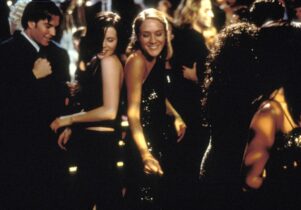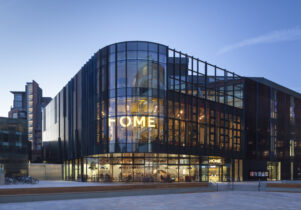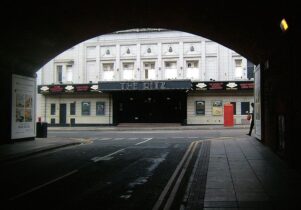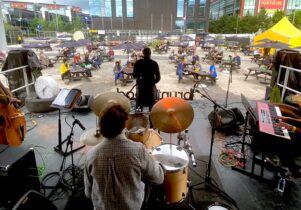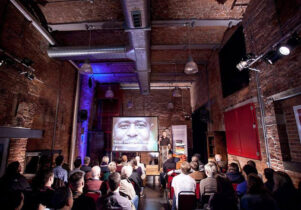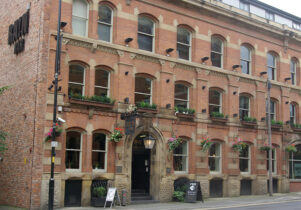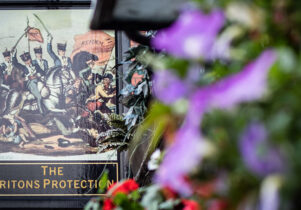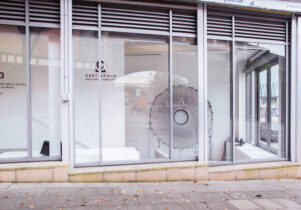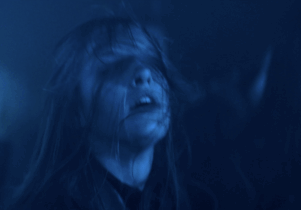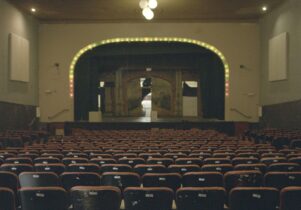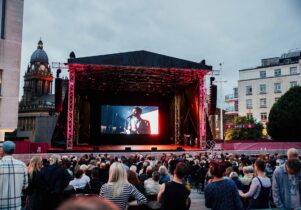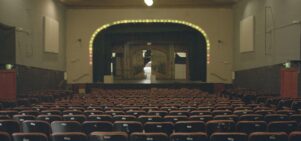Pain and Glory at HOME
Jim LaycockBook now
Pain and Glory
Always double check opening hours with the venue before making a special visit.
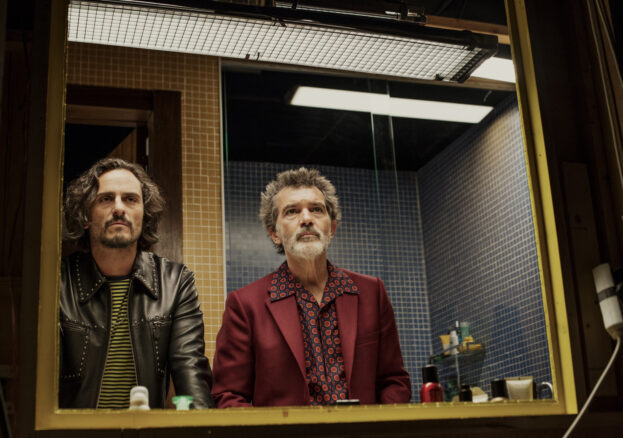
There’s a tellingly self-referential line Pedro Almodóvar’s Pain and Glory, in which an ageing film director, in the process of navigating a personal and professional crisis, is reunited with a former lover (Leonardo Sbaraglia), a recovered heroin addict turned restauranteur and family man who tells him, “You are the only Spanish director my [Argentinian] family know.” The fictional director Salvador Mallo, a spit for Almodóvar himself, in physical appearance, style and gesture, is played by Antonio Banderas in a role that won him the ‘Best Actor’ prize at this year’s Cannes Film Festival. Whilst not quite a work of autobiography, this is Spain’s most prominent and enduring filmmaker at his most personal and self-aware.
Well into his fourth decade as one of world cinema’s pre-eminent auteurs, Almodóvar employs all of his familiar hallmarks: melodrama, mischievous humour, frank depictions of queer desire and a deep, earnest love of cinema. At the same time, Pain and Glory is an almost confessional exploration of his own legacy, gorgeously evoking formative childhood memories and later life regrets and disappointments with a uniquely bittersweet sense of melancholy. As in previous films, Law of Desire and Bad Education, the ubiquitous role of cinema in the life of its protagonist is key, and Almodóvar considers this the final part of a spiritual trilogy.
Salvador’s intellectual and counter-cultural inclinations are clear from an early age. In flashback a priest rebukes the young Salvador’s vocal enthusiasm for “The Beatles and movies” as “pagan subjects.” Meanwhile, a monologue wistfully recalls a love of Hollywood movies shared with his mother (played in earlier scenes by a luminous Penelope Cruz and in her cantankerous final days by Almodóvar veteran Julieta Serrano). We’re shown images of Natalie Wood in Splendour in the Grass and Marilyn Monroe in Niagara, while Salvador laments that he just wanted his favourite tragic heroines to pull through in the end — a recurring theme in Almodóvar’s work.
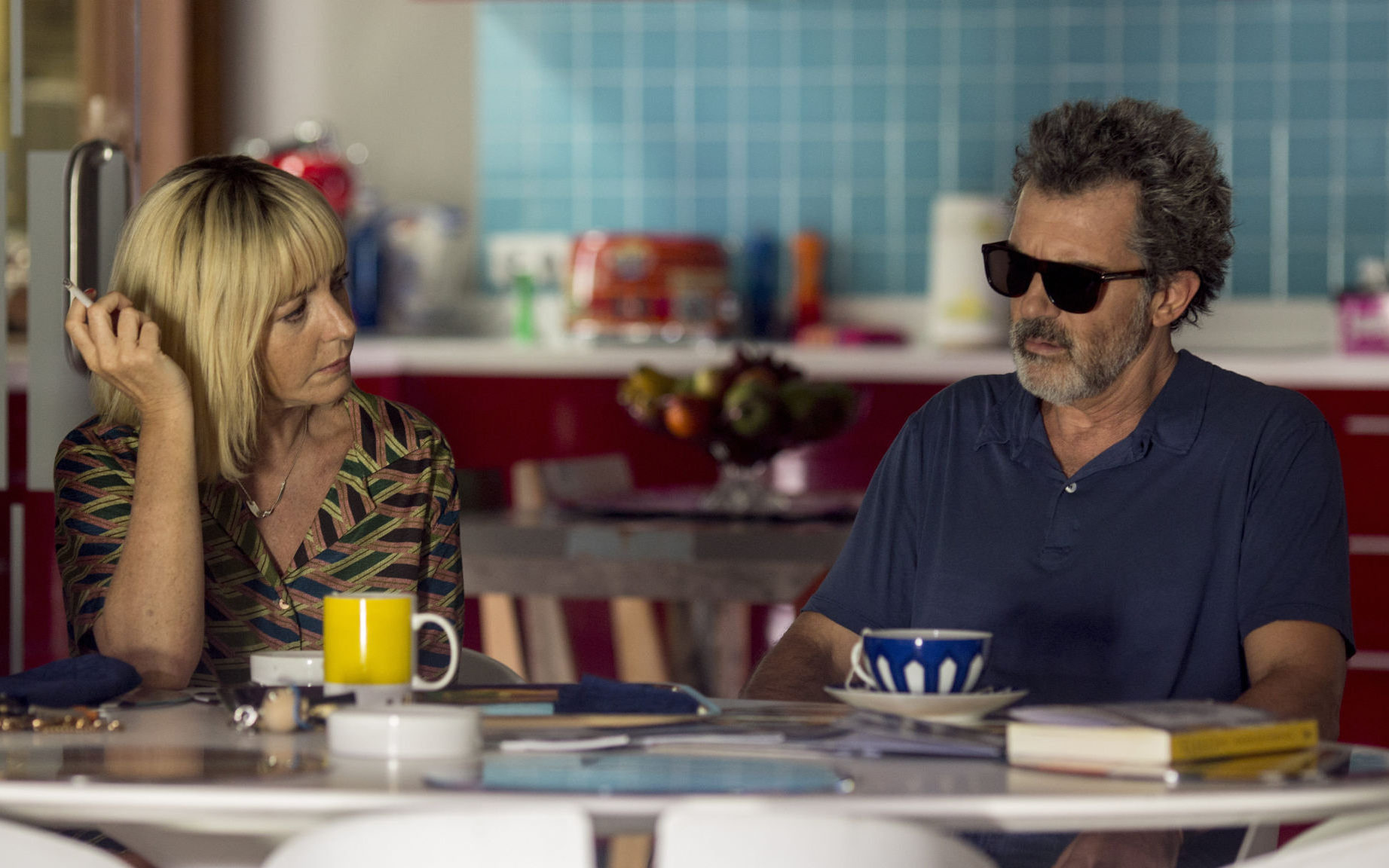
One obvious touchstone is Federico Fellini’s 8 1/2, which like Pain and Glory is a story of a film director wrestling with creative block, haunted by memories of his past and left struggling to reconcile the two. Films about filmmaking are evergreen of course, but there’s something serendipitous about the timing of the film’s presence at this year’s Cannes Film Festival alongside Once Upon a Time in Hollywood, Quentin Tarantino’s own divisive love letter to the movie culture and ephemera of his youth. The films share a specificity and poignancy even as they apply opposing styles to a nostalgic look at the world of filmmaking and the often disappointing reality hidden behind the glamour.
Another presence haunting Pain and Glory is La Movida — the countercultural movement of 1980s Madrid that Almodóvar himself was heavily involved in — which looms large over the life of Salvador, both in his memory and literally in the artefacts he surrounds himself with. This period of sexual and cultural freedom in the years after General Franco’s death (and Spain’s transition from authoritarian dictatorship to democracy) was formative for both the real life and fictional filmmaker. Salvador’s tether to the past is manifest through the introduction of a former leading man (Asier Etxeandia), whose devil-may-care lifestyle and drug use led to an acrimonious professional breakup during their La Movida heyday.
Once hesitant, Salvador embraces a lifestyle of casual, functional heroin use almost on a whim. But what begins as self-medication for chronic pain, develops into a method with which to lucidly reengage with his past, even if he is unable to fully reconcile it with his present. In a recent Sight & Sound interview, Almodóvar said that “For the youth of the ‘80s, drugs appeared as a symbol and symptom of freedom.” It’s an idea that Almodóvar explores in relation to the artistic process. Not the act of making art itself but in the details, the chance encounters and desires that inform its creation, and the toll on the artist when these things become entwined with already tangled notions of drugs and freedom.
